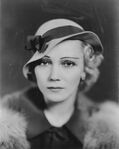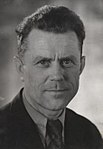Delkoran federal election, 1959
| ||||||||||||||||||||||||||||||||||||||||||||||||||||||||||||||||||||||||||||||||||||||||||||||||||||||||||||||||||||||||||||||||||
All 425 seats of the Chamber of Representatives 213 seats needed for a majority | ||||||||||||||||||||||||||||||||||||||||||||||||||||||||||||||||||||||||||||||||||||||||||||||||||||||||||||||||||||||||||||||||||
|---|---|---|---|---|---|---|---|---|---|---|---|---|---|---|---|---|---|---|---|---|---|---|---|---|---|---|---|---|---|---|---|---|---|---|---|---|---|---|---|---|---|---|---|---|---|---|---|---|---|---|---|---|---|---|---|---|---|---|---|---|---|---|---|---|---|---|---|---|---|---|---|---|---|---|---|---|---|---|---|---|---|---|---|---|---|---|---|---|---|---|---|---|---|---|---|---|---|---|---|---|---|---|---|---|---|---|---|---|---|---|---|---|---|---|---|---|---|---|---|---|---|---|---|---|---|---|---|---|---|---|
| Registered | 58,923,446 | |||||||||||||||||||||||||||||||||||||||||||||||||||||||||||||||||||||||||||||||||||||||||||||||||||||||||||||||||||||||||||||||||
| Turnout | 48,317,725 (82%) | |||||||||||||||||||||||||||||||||||||||||||||||||||||||||||||||||||||||||||||||||||||||||||||||||||||||||||||||||||||||||||||||||
| ||||||||||||||||||||||||||||||||||||||||||||||||||||||||||||||||||||||||||||||||||||||||||||||||||||||||||||||||||||||||||||||||||
| ||||||||||||||||||||||||||||||||||||||||||||||||||||||||||||||||||||||||||||||||||||||||||||||||||||||||||||||||||||||||||||||||||
The 1959 Delkoran federal election occurred on 7 June 1959 after a successful motion of no confidence against the government of Thalbius Sörbengaard. The election resulted in a landslide victory for National Labor, which won a rare outright majority. The resulting government led by Chancellor Mette Elvensar began implementation of the New Kingdom reforms, which would radically restructure the Delkoran economy.
The election marked the beginning of the third party system, as well as the so-called National Labor Hegemony, a term used to describe the period from 1959 to around 1975, when National Labor was dominant in Delkoran politics at the federal, state, and local levels.
Background
The late 1950's were characterized by widespread civil unrest in the major cities as people unsatisfied with the Conservative government's handling of the ongoing economic depression took to the streets in protest. Rioting, combined with targeted bombings carried out by the Labor Underground, prompted Chancellor Hjalmar Madsen to declare a state of emergency in 1958 and order the Federal Police to begin arresting the far-left activists responsible for organizing the protests.
This escalation prompted retaliatory strikes from several labor unions and led the General Labor Confederation of Delkora to call for Madsen's resignation and threaten a general strike. National Labor leader Mette Elvensar spoke in support of the GLCD, and continued to promote her party's New Kingdom program as an alternative to Madsen's austerity policies.
Following the assassination of Madsen in February 1959, he was succeeded as chancellor by Thalbius Sörbengaard. Almost immediately upon taking office, Sörbengaard faced calls to dissolve parliament and call an early election. He rejected these demands, largely maintaining the hardline stance of his predecessor. In a televised speech after being sworn in, he vowed to "restore law and order." Still, his support quickly began to erode as the situation in the cities continued to deteriorate.
A turning point came on 1 May, when the president of the Energy Workers Association was arrested by the Federal Police on charges of conspiracy to incite civil unrest, which were widely considered to be politically-motivated. The following day, the GLCD voted to authorize a general strike.
The militancy of the general strike prompted the collapse of Sörbengaard's parliamentary majority. With economic activity virtually ground to a halt by striking workers seizing control of businesses and shipyards, idling factories, and blocking off highways, Sörbengaard was forced to resign after a vote of no confidence on 15 May. Parliament was dissolved later that day, and an election was scheduled for 7 June.






